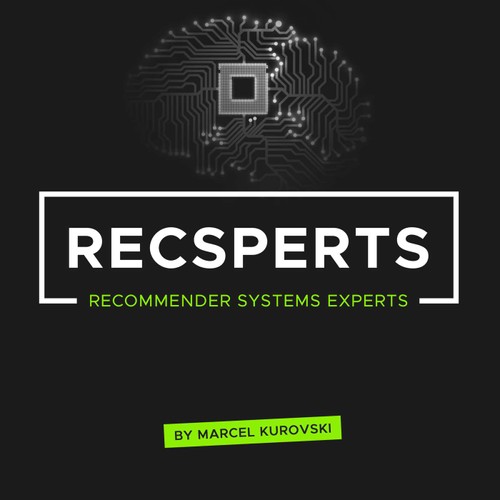
 Recsperts - Recommender Systems Experts
Recsperts - Recommender Systems Experts #3: Bandits and Simulators for Recommenders with Olivier Jeunen
11 snips
Jan 3, 2022 Chapters
Transcript
Episode notes
1 2 3 4 5 6 7 8 9 10 11 12 13 14 15 16 17 18 19 20 21 22 23 24 25 26 27 28
Introduction
00:00 • 3min
The Differences Between Advertising and Personalized Music
02:37 • 3min
Offline Approaches to Recommendation With Online Success
06:03 • 5min
The Problem With a Recommendation System
11:25 • 2min
How to Enable a Policy in a System
13:28 • 2min
The Trade-Off Between Exploration and Not Showing Good Recommendations
15:53 • 2min
How to Predict CTR Based on Offline Data
17:53 • 3min
The Benefits of Banded Learning for YouTube
20:55 • 2min
The Importance of Large Data in Advertising
22:41 • 3min
The Value of Rating Prediction in Online Recommendations
25:25 • 2min
The Benefits of a Simulated a-B Test
27:39 • 2min
How to Model Reinforcement Learning
29:45 • 3min
How to Measure User Enthusiasm
33:08 • 2min
Reward Engineering: An Open Problem for the Rexel Space
35:21 • 4min
How to Use Simulation Environments to Improve Banded Learning
38:53 • 2min
Building a Liquid-Gim Simulator
40:26 • 2min
How to Win a Data Science Challenge
42:12 • 4min
The Future of RACSIS Challenges
45:47 • 2min
The Difference Between Organic and Banded Feedback
48:01 • 2min
The Hard Statement: Is All Feedback Banded?
50:27 • 2min
The Future of Rekso
52:54 • 2min
Castle, Inference and Machine Learning
54:40 • 4min
The Importance of Learning
58:40 • 2min
The Greatest Challenges in the Rexxas Space
01:00:35 • 2min
How to Be a Successful PhD Student at Amazon
01:03:01 • 2min
How to Keep Growing in a Work Environment
01:04:48 • 2min
The Importance of Fairness in the Rexxo Space
01:06:59 • 2min
Rexxwords: Recommender Systems Expert
01:08:44 • 2min
